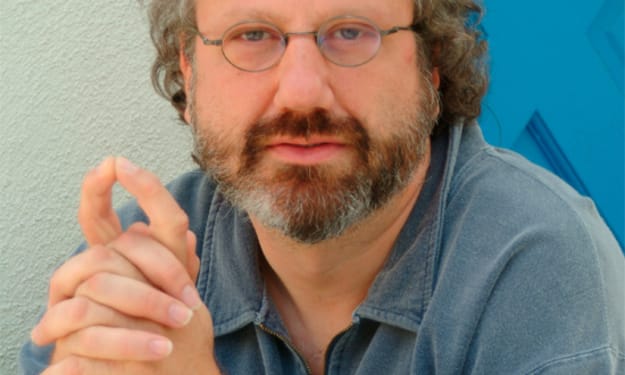Joni Mitchell Interview
1988 Interview by Andrew Watt

My interview with Joni Mitchell was conducted by phone in 1988 and appeared in InPress on Wednesday, 27 July, 1988, in Edition 3 of InPress. She was forty-four at the time and had just released the album Chalk Mark in a Rainstorm. In this interview, she talks about maintaining her innocence, finding meaning in music, Elvis and Kylie and the respect she had received from Prince.
Original Interview
A conversation with Joni Mitchell is like taking a trip through several generations of consciousness. Now 44 and still producing records of clarity, musical dexterity and enlightened understanding, Mitchell, in the space of an hour passes through moods of almost naive idealism, harsh pragmatism, hope, despair, amusement and concerned earnestness.
When you think about it, it's little wonder that Mitchell has, for almost twenty years, been writing songs with an almost unmatched ability to move the listener.
Certainly the most popular image of Mitchell is that of the innocent, the idealist. And whilst she is anxious to point out that this side is only one facet of the persona she creates through her songs, she also is adamant that innocence is a factor worth fighting for.
"Innocence is the spark of creativity," she said. You have to have it, you have to keep the child alive. This is crucial. And idealism? It's hard to hold on to it the more aware you become and the more realistic you are. I don't think at this point I am a romantic idealist. I think I'm a fairly well informed and realistic person in a lot of ways, but I still have hope."
I reminded Mitchell of a quote I'd read in which she defined innocence as "still being able to be touched by joy."
"Yeah, exactly. You've got to make yourself a channel for it because it doesn't just come to you. You can have pleasure. Pleasure is like the methadone of joy. It's like synthetic joy and its handmaiden, its companion, is fear. Pleasure-fear, pleasure-fear, pleasure-fear—you are always on the cycle. Whereas joy doesn't turn into fear. It's a pure agent. If you can make yourself attractive to joy, you've got a much better chance of getting off the pleasure-fear cycle."
For many people, no matter how aware they are of the music she has made in the past fifteen years, Joni Mitchell remains the quintessential folk musician.
From 1968 to 1974, armed with an acoustic guitar, Mitchell sang songs such as "Both Sides Now," "Big Yellow Taxi" and "Woodstock" in a voice that was simultaneously concerned and emotionally vulnerable—tools of the trade most frequently associated with folk songwriters of that era.
Canadian-born Mitchell, has recorded ten albums since the 1974 commercial landmark Court and Spark, branching out into pop, rock, intricate jazz and more recently a stylish hybrid of all three.
Mitchell agreed that there will always be those who yearn for the "Folk Joni," though this image is hardly representative of the major body of her work.
"Folk Joni"
"Imagine how dull it would have been if I had just sat there plucking away on a guitar all this time," she said. "I've travelled through a wealth of musical experiences. Now when I go back to simplicity—if and when I do—it will be all the richer for the experience.
"If I'd done what some people dictated—pandered to the appetites of a few —I would have been dead inside right now."
Mitchell sees the eighties as her era of bad timing. Her post-marital 1982 album Wild Things Run Fast was a collection of love songs celebrating her union with jazz bass player Larry Klein. She claims it was released into a climate of absolute cynicism about love; the most cynical black and anti-romantic period she can recall.
Her next release, the 1985 Dog Eat Dog was Mitchell at her most biter and cynical, questioning the materialistic values that had gripped Americans, particularly those of her generation. She found that the album cut too close to the bone, and her audience was crying out for an album of love songs to balance what she saw as a dearth of love in their lives.
Mitchell's latest album, Chalk Mark In A Rainstorm, is born into another difficult musical climate. This year has been described as the year of the youth cult, when teenagers such as Tiffany, Debbie Gibson and our own Kylie Minogue dominate the charts.
As a 44-year-old with plenty left to say, does Mitchell feel in any way frozen out of a musical scene that seems to worship the youth of the messenger before the content of the message?
"I recognise it; it's something I went through myself," she admits. "In the 50s, rock 'n roll blossomed out of the churches. It came out of black culture and Elvis was one of the first white boys to carry the banner.
"The second wave of rock and roll meant commercial opportunism when cute boys and cute girls—whether they could sing or not—were promoted with their faces on magazines. The teen hero was discovered. So what it's like now isn't that different from the mindless dance era of the late fifties and early sixties, which was followed by some kind of revolution."
"It's been a mindless superficial time but I don't think it's going to last much longer. Perhaps political and economic tensions will start people thinking again."
If recent years have been somewhat difficult for Joni Mitchell, she certainly hasn't been without some significant supporters.
Most important of all was Prince—widely regarded as one of the few genuine innovators of the eighties—who in recent interviews has lauded Mitchell as a major influence on his work.
"It's flattering if people like your work, but Prince was really my best PR man. I really owe a lot to him because he began to praise me publicly at a time when even my own manager had lost sight of my importance."
"It was a time when no matter what I did it wouldn't be good enough. No matter how contemporary I was, I would be viewed as 'that folk singer from the sixties' which is ridiculous considering I made only two albums then. Nobody could see I was continuing to grow."
"People are sheep, and by placing importance on me Prince gave them permission to listen to me again."
Prince Covers Joni
About the Creator
Andrew Watt
Andrew Watt is a music writer. and has interviewed 100's of artists for numerous publications. His articles here are enhanced reproductions of those interviews.






Comments
There are no comments for this story
Be the first to respond and start the conversation.